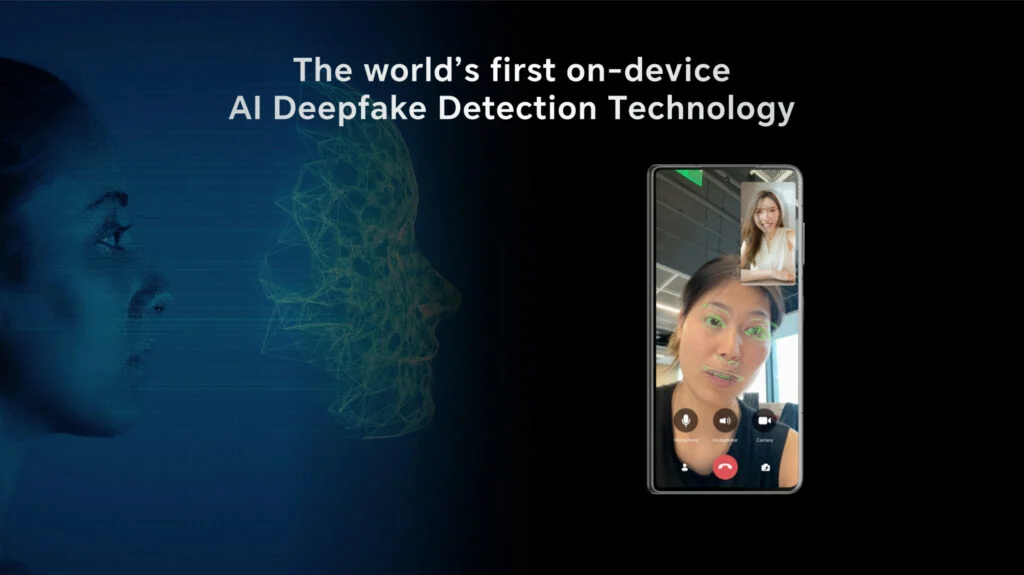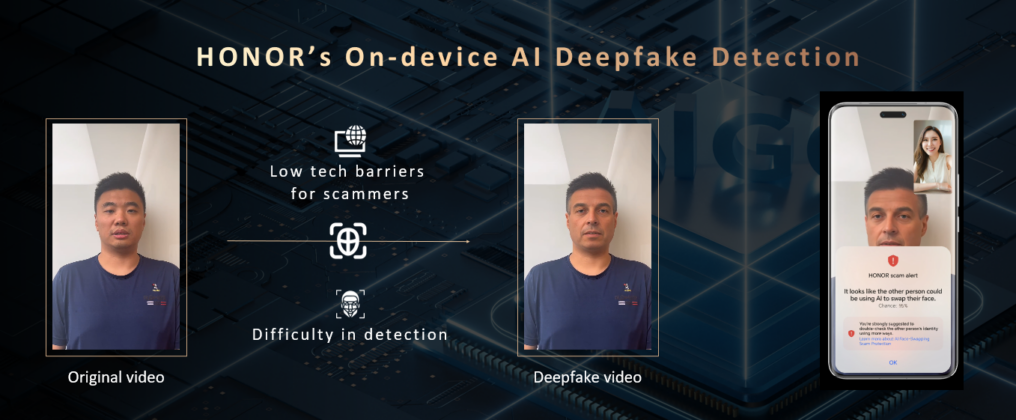HONOR has declared that its AI Deepfake Detection feature will be globally accessible beginning in April 2025. This initiative is designed to assist users in recognizing altered audio and video content in real time.
Deepfake technology, which employs artificial intelligence to create convincingly realistic yet fabricated media, has emerged as a significant concern for both businesses and individuals. According to the Entrust Cybersecurity Institute, there was a deepfake attack every five minutes in 2024. Additionally, Deloitte’s 2024 Connected Consumer Study revealed that 59% of participants found it challenging to distinguish between human-created content and that produced by AI. Furthermore, 84% of generative AI users expressed a desire for clear labeling of AI-generated material.

HONOR unveiled its AI Deepfake Detection technology at IFA 2024. This innovative system employs sophisticated AI algorithms to detect subtle inconsistencies that may elude human observation. Such inconsistencies can manifest as pixel-level defects, problems with border compositing, discrepancies between video frames, and atypical facial characteristics, including unusual face-to-ear ratios or hairstyle irregularities. Upon detecting manipulated content, the system promptly issues an alert, enabling users to avoid potential risks.
This worldwide launch occurs amid a surge in deepfake-related incidents. From 2023 to 2024, the prevalence of digital document forgery rose by 244%. Industries such as iGaming, fintech, and cryptocurrency have been particularly affected, experiencing year-over-year increases in deepfake occurrences of 1520%, 533%, and 217%, respectively.
HONOR’s initiatives contribute to a broader industry movement aimed at tackling the challenges posed by deepfakes. Collaborative efforts among organizations such as Content Provenance and Authenticity (C2PA), which includes Adobe, Arm, Intel, Microsoft, and Truepic, are focused on establishing technical standards for verifying the authenticity of digital content. Microsoft has developed AI tools designed to mitigate the risks associated with deepfake misuse, including an automatic face-blurring feature for images uploaded to Copilot. Furthermore, Qualcomm’s Snapdragon X Elite NPU facilitates local deepfake detection through McAfee’s AI models, ensuring user privacy is preserved.
Marco Kamiya from the United Nations Industrial Development Organization (UNIDO) commended this technology, emphasizing that AI Deepfake Detection serves as an essential security measure for mobile devices, aiding in the protection of users against digital manipulation.
For more daily updates, please visit our News Section.

